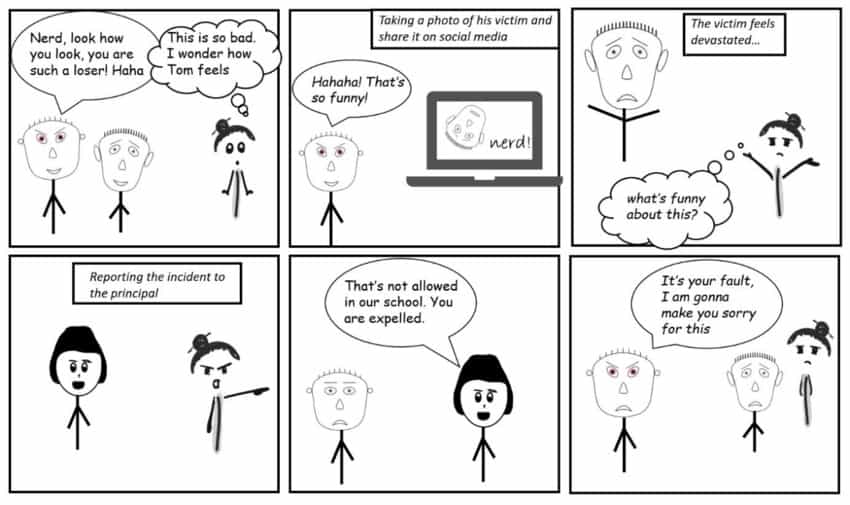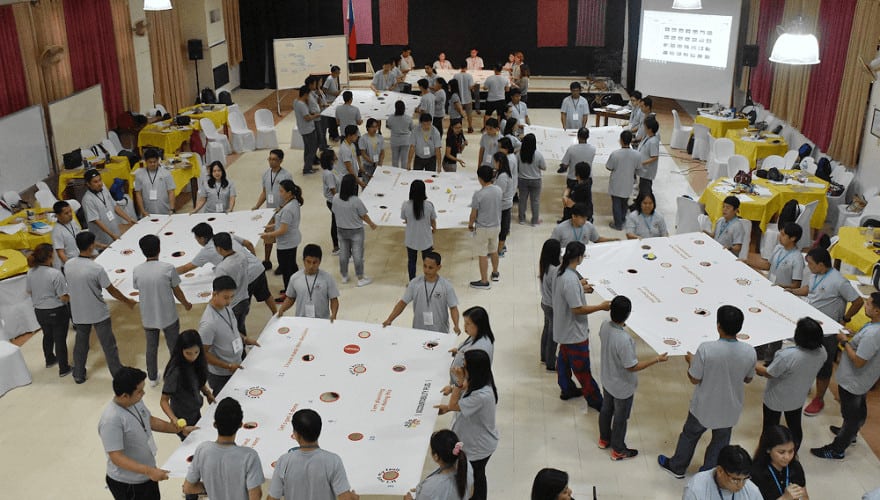Cyberbullying in the Philippines often looks “normal” on social media, but it can crush mental health, isolate victims, and normalize cruelty if nobody pushes back. Jef Menguin brings a grounded, Filipino lens to bullying—what it is, why it persists, and what actually helps. In this article, Jef Menguin shares clear actions you can take to protect yourself and others, then use it as a shared standard at home or at work.
A deeper understanding of cyberbullying in the Philippines helps us manage trolls and anonymous bullies online. Protect your digital well-being and invest your time in more productive endeavors. You can learn ways to handle cyberbullying through self-study, mentoring, and training. For example, you may consider reading the 29 Ways to Fight and Stop Cyberbullying.
The purpose of this post is to share with you my experience, what I see cyberbullies do, and some advice on how to handle them.
I got bullied too.
Yes, I got bullied by the same people who bullied me in high school.
A year before the pandemic, I joined an FB group that was created to promote the alumni homecoming of my school. I remember posting a question to get more details. I wanted to participate.
Then, I logged out. I was too tired from a day of facilitating team building.
The next day, I read a long thread of former schoolmates who taunted and ridiculed me for writing in English. Someone said that I was too arrogant.
I was surprised. I could not understand how a question like “Where do you intend to hold this?’ can be deemed arrogant. These are the same bullies I had to endure when I was in high school.
In the last few years, conversations on FB become more toxic. Strangers quickly called me “Tanga” and “Bobo” for having different opinions. People who easily believe in misinformation and disinformation tend to be very aggressive online. In the Philippines, bullying and politics grow together.
Many of us are harassed for speaking our minds. Others are red-tagged because they are helping fellow Filipinos.
This is cyberbullying. Well, not the kind of bullying in RA 10627.
We may call this trolling, harassment, or abuse. Or simply cyberbullying.
Cyberbullying is digital bullying. Bullies use technology to intimidate, threaten, stalk, ridicule, humiliate, taunt, and spread rumors about their target person.
We must also keep in mind that there is no cyberbullying law in the Philippines. Cyberbullying is a type of bullying in the Anti-Bullying Act. And not all cyberbullying activities are punished under RA 10627.
I see many cyberbullying activities on social media. However, since the victims are not students and are school-related, the bullies go unpunished.
The Case of Robredo Sisters
The Robredo sisters were victims of cyberbullying. The intention of those who created the fake sex videos was not only to derail the candidacy of Leni Robredo, but to ridicule and humiliate the sisters.
In my dictionary, this is cyberbullying. But RA 10627 does not protect them because they are not students.
But, this does not mean that the perpetrators will remain unpunished.
The Robredo sisters sought the help of the NBI. Their lawyer will use Republic Act No. 11313 or the Safe Spaces Act. [mfn] Read Tricia Robredo Asks NBI to go after culprits.
I felt that the case is cyber libel. But I am not a lawyer. The Safe Spaces Act needs a city or municipal ordinance. Unfortunately, many cities and municipalities are yet to pass counterpart local ordinances.
Harassment has so many names.
We live in a global village via the Internet, mobile phones, and tablets. These high-tech tools improve the way we communicate and relate with others. In the hands of abusers, they become instruments to harm and humiliate others.
Not all of us can handle abusers that hide behind the monitors of our computers and mobile phones. We need to equip and strengthen ourselves against online abusers. We must also help our children take care of themselves.

Kinds of Cyberbullying
Cyberbullies use the following kinds of cyberbullying. Knowing these will help both parents and educators handle cyberbullying.
Unfortunately, many Filipino parents are not aware of these kinds of cyberbullying. Those who have internet access spend most of their time on Tiktok. And though this article ranks #1 on bullying in the Philippines, only a few hundred read this every month.
Bashboarding.
They use online message boards to make malicious postings about their target person. Before the Cybercrime Prevention Act, perpetrators thought they could quickly get away with bashboarding.
Leni Robredo, for example, has been the target of many malicious accusations and threats. I also had my share of these threats in 2016 and 2017 during the War on Drugs Campaign of Rodrigo Duterte.
Flaming
In flaming, perpetrators send hostile, insulting, offensive, and hateful electronic messages about the target person.
The messages are often sent in emails and instant messages (or chatrooms). For example, I got flamed by people who called me names, probably thinking I would be afraid to express my thoughts again.
Impersonation
Bullies impersonate you to damage your reputation, put you in danger, get you into trouble, and sever your friendships with others.
They get your information (usually available online) and send messages to people you know.
I once found out that I had a doppelganger account on Facebook.
Criminals use impersonation for other online criminal activities, for example, scamming. Therefore, we must teach our children how to secure their online privacy.
Polling
Cyberbullies use online polling to ask and answer cruel questions about you. For example, they ask about your physical appearance, intelligence, and sexuality to make people laugh and ridicule you.
I have not heard of anyone sued because of this. But there is no doubt in my mind that those who participate in polls like these are bystanders who think that answering questions does not make them liable.
Outing
They share secrets, including private information, pictures, and videos, to damage the reputation of the target person.
Sometimes, the intention of outing someone’s secret is innocent. For example, kids sometimes share funny photos of their classmates for fun without thinking of the negative psychological effect of the act.
Therefore, we must teach our kids about unintended consequences.
Cyberstalking
Cyberstalkers use the internet to stalk and harass their targets which can be individuals, groups, or organizations.
Cyberstalking can take the form of slander, defamation, or threat. They stalk to intimidate their targets or to gather the information they can use in other crimes, like identity theft or offline stalking.
Filipinos enjoy sharing the events in their lives online. They talk about their love life, favorite foods, friends, birthdays, etc. Cyberstalkers find it easy to get the information they need.
Many years ago, I met someone who had questions about “motivational speaking.” She asked to meet me personally. I realized that she’s been reading everything about me online during our conversation. No, it was not flattering at all. I felt like I was being watched all the time.
What was harmless at first became very annoying. She sent messages like there was something between us.
Stalkers do not need to communicate with us. Instead, they can watch us — and use what they know to manipulate us.
Denigration
I don’t know what to call this cyberbullying. But the intention was clear: the person unfairly criticized me on his website to blacken my reputation in an international organization where both of us are members.
He wrote that I was a combination of a monkey and a penguin, but only uglier. He said that my grammar sucked and my speech evaluations were infantile.
Yes, he mentioned my name on his blog. However, I did not know where the hate came from. We belong to two different clubs, and we never had a conversation.
His fellow members were the ones who regularly invited me to their club. I did not confront him. But reading his blog entries discouraged me from revisiting their club.
While writing this article, I searched for his blog. I cannot find the blog post anymore.
If you want Filipino values to show up as real behavior at work…
Let’s turn it into a culture shift experience.
→ Shift Experiences


